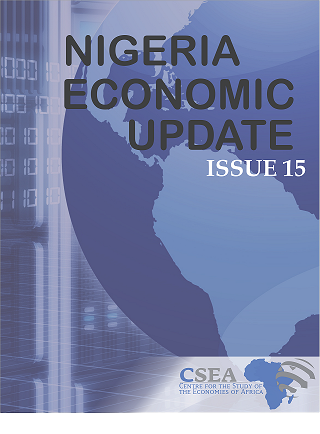Consumer Price Index, the measure for inflation rate, declined (Year-on-Year) for the fourteenth consecutive month in March 2018. Headline inflation dropped to 13.34 percent1 – representing a marginal 0.99 percentage-points decrease, and lowest inflation rate in two years. The sub-indices moved in tandem with headline inflation as food inflation fell from 17.59 percent to 16.08 percent, while core inflation moderated to 11.20 percent, down slightly from 11.70 percent. The year-on-year decline is attributable to base effects of higher prices in corresponding month of 2017. Additionally, stable exchange rate moderated the impact of imported consumer goods prices2. Going forward, to stimulate further decline in both food and core inflation rates, it is necessary to promote investment in the agriculture sector as well as to foster policies that promote forex reserve growth and exchange rate stability.
Macroeconomic Report & Economic Updates

March 8, 2018
Nigeria Economic Update (Issue 15)
Consumer Price Index, the measure for inflation rate, declined (Year-on-Year) for the fourteenth consecutive month in March 2018. Headline inflation dropped to 13.34 percent1 – representing a marginal 0.99 percentage-points decrease, and lowest inflation rate in two years. The sub-indices moved in tandem with headline inflation as food inflation fell from 17.59 percent to 16.08 […]
Read →
Related
Nigeria Economic Review (First Half Report 2015)
The modest growth in the
global output witnessed in the first quarter of 2015 was driven mainly by
advanced economies, particularly the United States. Growth slowed down significantly
in emerging and developing economies, primarily natural resource-dependent
countries which were adversely affected by falling commodity prices.
